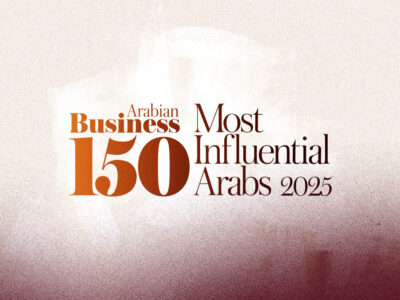In August a small unimposing manufacturer located in the northeast of England earned a place in the history books. International Innovative Technologies (IIT), a maker of industrial milling machines in Gateshead, was looking to find finance for its expansion plans and the current lack of liquidity in the UK meant many of the traditional routes were quite limited.
IIT eventually raised $10m through a private sukuk, making it the first company in Europe to raise funds in such a way and earning it a prominent footnote in the history of Islamic finance.
The main investor in Europe’s first corporate sukuk was Dubai-based Millennium Private Equity Ltd and the bond will be listed on the Cayman Islands Stock Exchange, demonstrating how modern Islamic finance has grown into a truly global industry.
“There is absolutely no reason (why) other corporates and government entities cannot follow suit,” says Farmida Bi, a legal advisor on the IIT transaction.
It is hardly surprising it is the UK that is leading the force in developing the sukuk market outside the Middle East as London is Europe’s most sophisticated Islamic finance market. Last year, the London Stock Exchange listed 25 sukuk, raising a combined total of around $14.5bn, ranking it just below the Nasdaq Dubai in terms of total value raised.
The surge in interest in sukuk was further emphasised when Fahed Boodai, co-founder and chairman of the UK-based Gatehouse Bank, a subsidiary of Kuwait’s Global Securities House, recently told Arabian Business that the British government is “seriously considering” issuing its first sovereign sukuk by the end of this year.
The impact of the global recession has seen worldwide sales of sukuk decline 24 percent this year to $12bn, compared to a record $31bn in the boom era of 2007, according to data compiled by Bloomberg.
However, if the UK government was to follow through on its plans to issue a sovereign sukuk it would be another major stepping stone in advancement of Islamic finance and lead to the sector — which currently accounts for just one percent of global markets — to really take centre stage in international markets.
Of course, it is not just the UK that is steaming ahead and jumping on the sukuk bandwagon. In the past months, Egypt, Nigeria, the Philippines and Thailand have announced plans to sell their first sukuk, in a bid to tap into the oil wealth in the Gulf.
Australia is making some of the strongest moves to sign up to the sukuk market and is putting in place plans to change its tax system to give Islamic finance products equal pegging with conventional methods. The country’s national taxation board is due to hold talks to make sure Islamic financing is treated the same as non-Islamic financing and is not disadvantaged or taxed twice.
Australia has a Muslim population of around 365,000 and, in a bid to attract more Arabic and Asian financing, it is looking to tap into the Islamic finance market in Malaysia, the largest sukuk market.
“Islamic finance is a rapidly growing part of the global financial system and Australia is in an excellent position to capitalise on that growth,” says Bill Shorten, assistant treasurer at the Kuala Lumpur-based Islamic Financial Services Board.
The Middle East is also showing interest in interacting with new markets, such as Australia. “Sukuk from the Australian government would likely attract interest from investors,” believes Rohit Chawdhry, who oversees $350m of assets at Bahrain Islamic Bank, the country’s second- largest Sharia-compliant lender.
“Australia wants investment from Gulf countries and that’s the reason they are taking it very seriously,” adds Abu Umar Faruq Ahmad, chairman of the Sharia Supervisory Board at the Sydney-based Islamic Co-Operative Finance Australia Ltd. “I see a lot of interest from the Gulf.”
Malaysian law firm Zaid Ibrahim, which has offices in Sydney and Melbourne, confirms that the process is not just idle talk and his firm is currently advising “a few” Australian companies who are interested in issuing overseas sukuk.
Shifting to the other side of the globe, a similar story is happening in Canada, where sukuk are offering an alternative model to companies in urgent need of finance. Relations with Canada and the Middle East were affected recently when the $2bn worth of trade between the two regions were dealt a blow following the collapse of talks over increasing the number of flights between Canada and the UAE.
However, there is growing demand in the North American country for Sharia-compliant bonds. HSBC Bank Canada is expected to offer $500m and three government related Canadian borrowers are also rumoured to be on the verge of issuing $1.5bn of sukuk, Omar Kalair, CEO of Toronto based UM Financial says, without naming specific names of companies or borrowers.
“We would definitely be interested in a sukuk out of Canada,” adds Ramiz Moukarim, head of debt capital markets at Qatar Islamic Bank SAQ. “Whether it’s regional or federal, it doesn’t matter because of the nation’s rating,” he adds. Canada currently enjoys a top AAA ratings from Standard & Poor’s and Moody’s Investors Service.
Closer to home, Jordan and Turkey are also looking to sukuk as an avenue to advance their financial and political goals. The Jordanian cabinet is in the process of issuing new sukuk legislation that will allow it to issue its first ever sovereign sukuk.
The new law should be passed by year end, widening Jordan’s borrowing options beyond conventional public debt instruments and helping finance a growing deficit, worsened by the global downturn and a fall in foreign aid that traditionally covers budget shortfalls.
“The main prerequisites for the issuance of sukuk have been drafted. [The draft law] provides the regulatory framework… and I expect in two weeks’ time the draft law will be submitted to the cabinet,” committee leader and Minister of Religious Affairs Abdul Salam Abbadi said in late October.
Jordanian finance minister Mohammad Abu Hammour says it was a government priority to enact the law as soon as possible.
In August, Turkey issued its first sukuk from lender Kuveyt Turk for a three year, $100m Islamic bond and it was oversubscribed by 45 percent, demonstrating the demand in the country. However, there is more than financing behind Turkey’s move to adopt Islamic sukuk. After striving to gain entry to the European Union, Turkey is now changing direction and looking east for potential capital.
“The emergence of sukuk in Turkey is a socio-political issue. Turkey is now looking to align itself more to the Arab world than the West,” says Rizwan Kanji, senior debt capital markets attorney at law firm Norton Rose.
The increasing global attraction of sukuk will see demand return to “pre-crisis” levels by late 2011, experts predict.
“The yields offered here are high, and investors globally are willing to take the risk of investing here to get that spread and return. We should see pre-crisis levels of regional and international interest in Islamic debt from the Middle East by the third quarter of 2011,” says Samad Sirohey, Dubai based chief executive of Citi Islamic Investment Bank.
The growth in appetite for sukuk can be put down to the resolution of the Dubai World crisis, which has restored confidence in the Islamic lending markets.
Khalid Howladar, a Dubai based senior analyst at Moody’s estimates that sukuk sales in the GCC will most likely rise in 2011 and could reach “perhaps $5bn to $6bn.”
While Howladar says he “wouldn’t be surprised to see Islamic banks continue to tap the sukuk market,” there is one stumbling block to the sukuk market totally taking hold of the global markets: returns.
Global sukuk returned twelve percent this year, according to the HSBC/NASDAQ Dubai US Dollar Sukuk Index. However, bonds in developing markets gained 16.2 percent according to the JPMorgan Chase & Co’s EMBI Global Diversified Index.
At the end of the day, sometimes the bottom dollar is what counts. But with global players like Australia, the UK and Canada jumping on board it seems the sukuk market is attracting some high profile attention.








